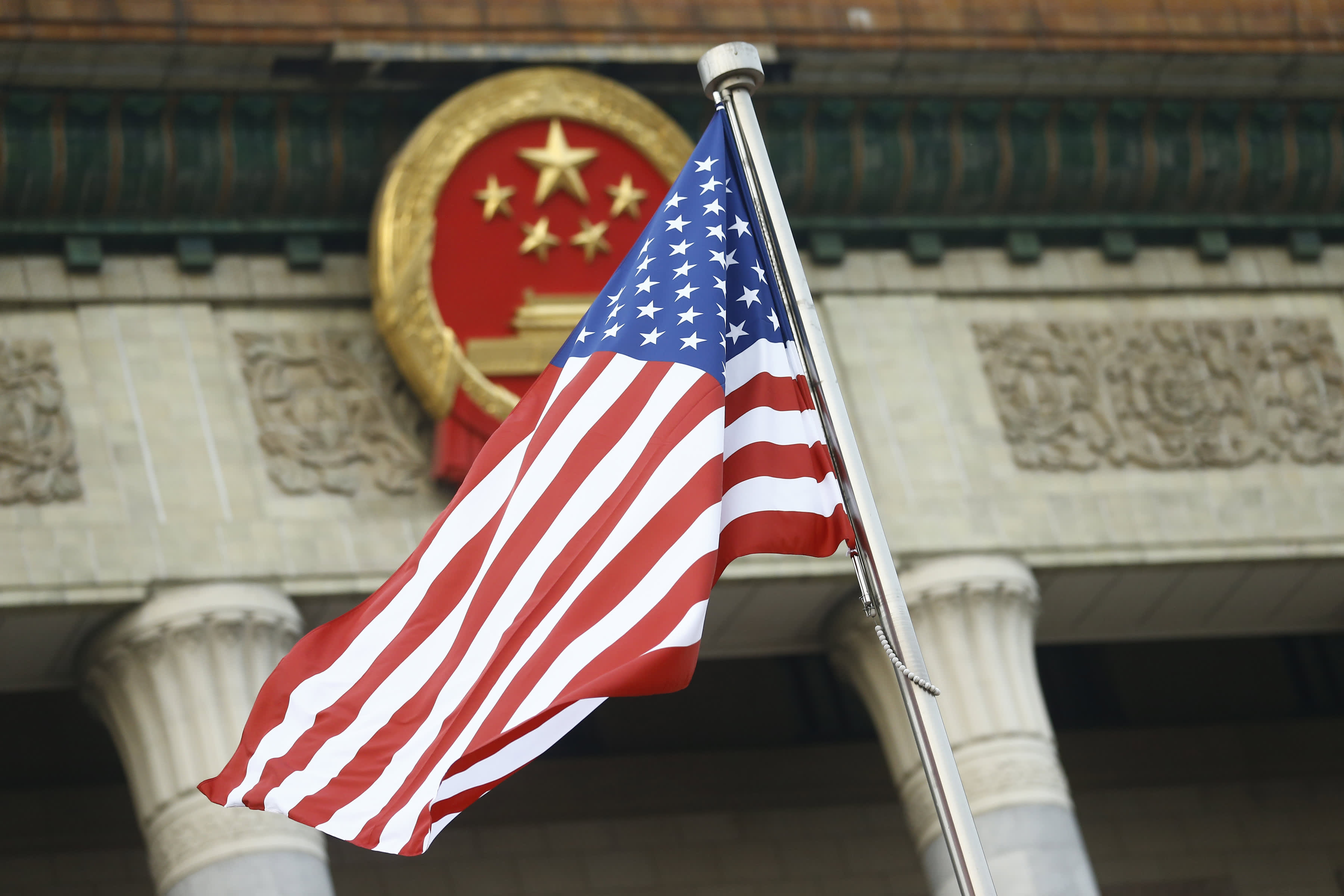
The U.S. flag flies at a welcoming ceremony between Chinese President Xi Jinping and U.S. President Donald Trump in 2017.
Thomas Peter | Getty Images
SINGAPORE — The Trans-Pacific Partnership was a “missed opportunity” for the U.S. to “put a lot of pressure” on China, said former Senator Bob Corker.
The TPP was a massive trade deal negotiated by former President Barack Obama and 11 other countries — which excludes China. The deal in its original form would have been the world’s largest trade agreement, covering nearly 40% of the global economy.
But the agreement was widely criticized in the U.S. and never passed Congress. Shortly after taking office in 2017, President Donald Trump pulled the U.S. out of the trade agreement.
… it was a missed opportunity for our country to really put a lot of pressure against some of the things that China was doing and to have an alliance that would have made a significant difference.
Bob Corker
Former senator
“Obviously politics got a hold of the issue in 2016 and it was a missed opportunity for our country to really put a lot of pressure against some of the things that China was doing, and to have an alliance that would have made a significant difference,” Corker, Republican senator for Tennessee from 2007 to 2019, said Tuesday at the Milken Institute Asia Summit.
“It would be a significant step forward if the Biden administration can figure out a way” to rebuild an alliance like the TPP, he said. Doing that “will be a very powerful step forward” for the U.S., said Corker, who was chairman of the Senate Committee on Foreign Relations from 2015 to 2019.
The former senator was part of a panel discussion held virtually to talk about the outlook for the U.S. under President-elect Joe Biden. Biden had said that he won’t rush into any new trade agreements, but would consult with allies to form “a coherent strategy” on China.
After the U.S. withdrew from the TPP, the remaining 11 member countries renegotiated and concluded the Comprehensive and Progressive Agreement for Trans-Pacific Partnership or CPTPP.
U.S. Secretary of Commerce Wilbur Ross, who spoke earlier at the same summit, said pulling out of TPP wasn’t a sign of American protectionism. The Trump administration “strongly” favors increased and freer trade with the Asia-Pacific region — but objected to “specific detail” in the deal, said Ross.
“TPP would have increased our trade deficit, that is why in the last presidential election, neither President Trump nor Hillary Clinton supported TPP,” said Ross. “And for that matter, there’s no support for it in the U.S. Congress. So it was never going to happen regardless who won the election.”
Working with U.S. allies
The U.S. under Trump has frequently highlighted problems with Chinese business practices, such as subsidies for state-owned companies and the lack of intellectual property protection. Other countries agreed with those U.S. complaints on China, but the Trump administration has largely chosen to act against Beijing on its own.
Trump “didn’t do a good job at all” in organizing U.S. allies against China, said Corker. During his time in the Senate, Corker was among the Republicans who pushed back against Trump’s tariffs.
While Trump’s tariffs have not been effective in reining in Beijing, Corker said the president has made people in the U.S. understand the challenges the country faces in dealing with China.
He said he applauds Biden for wanting to work with allies, but warned that China is a major economic partner to many American allies.
“It certainly needs to be done, and certainly we need to work with them if we’re gonna have an effective long-term policy dealing with China — but it’s gonna be a lot of work because they too are gonna be fearful of what that might mean to them economically,” said Corker.
Source: CNBC
